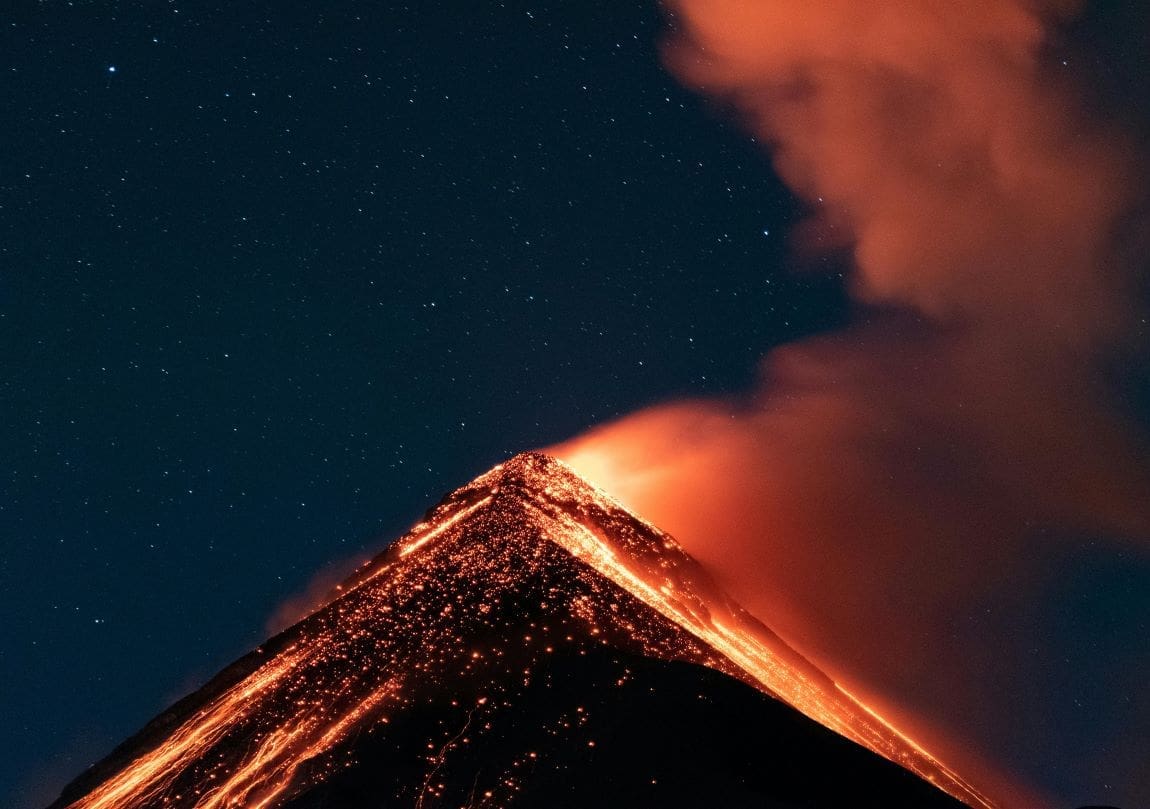Catastrophic volcanic eruptions that warmed the planet millions of years ago shed new light on how plants evolve and regulate climate. Researchers reveal the long-term climate effects of disturbed natural ecosystems – its implications both in geological history and for today.
By Marianne Lucien | ETH Zurich
Scientists often seek answers to humanity’s most pressing challenges in nature. When it comes to global warming, geological history offers a unique, long-term perspective. Earth’s geological history is spiked by periods of catastrophic volcanic eruptions that released vast amounts of carbon into the atmosphere and oceans.
The increased carbon triggered rapid climate warming that resulted in mass extinctions on land and in marine ecosystems. These periods of volcanism may also have disrupted carbon-climate regulation systems for millions of years.
Ecological imbalance
Earth and environmental scientists at ETH Zurich led an international team of researchers from the University of Arizona, University of Leeds, CNRS Toulouse, and the Swiss Federal Institute for Forest Snow and Landscape Research (WSL) in a study on how vegetation responds and evolves in response to major climatic shifts and how such shifts affect Earth’s natural carbon-climate regulation system.
The research has been published in Science journal.
Drawing on geochemical analyses of isotopes in sediments, the research team compared the data with a specially designed model, which included a representation of vegetation and its role in regulating the geological climate system. They used the model to test how the Earth system responds to the intense release of carbon from volcanic activity in different scenarios.
They studied three significant climatic shifts in geological history, including the Siberian Traps event that caused the Permian-Triassic mass extinction about 252 million years ago. ETH Zurich professor, Taras Gerya points out, “The Siberian Traps event released some 40,000 gigatons (Gt) of carbon over 200,000 years. The resulting increase in global average temperatures between 5 – 10°C caused Earth’s most severe extinction event in the geologic record.”
Move, adapt, or perish
“The recovery of vegetation from the Siberian Traps event took several millions of years and during this time Earth’s carbon-climate regulation system would have been weak and inefficient resulting in long-term climate warming,” explains lead author, Julian Rogger, ETH Zurich.
Researchers found that the severity of such events is determined by how fast emitted carbon can be returned to Earth’s interior – sequestered through silicate mineral weathering or organic carbon production, removing carbon from Earth’s atmosphere. They also found that the time it takes for the climate to reach a new state of equilibrium depended on how fast vegetation adapted to increasing temperatures.
Some species adapted by evolving and others by migrating geographically to cooler regions. However, some geological events were so catastrophic that plant species simply did not have enough time to migrate or adapt to the sustained increase in temperature. The consequences of which left its geochemical mark on climate evolution for thousands, possibly millions, of years.
Today’s human-induced climate crisis
What does this mean for human induced climate change? The study found that a disruption of vegetation increased the duration and severity of climate warming in the geologic past. In some cases, it may have taken millions of years to reach a new stable climatic equilibrium due to a reduced capacity of vegetation to regulate Earth’s carbon cycle.
“Today, we find ourselves in a major global bioclimatic crisis,” comments Loïc Pellissier, Professor of Ecosystems and Landscape Evolution at ETH Zurich and WSL. “Our study demonstrates the role of a functioning of vegetation to recover from abrupt climatic changes. We are currently releasing greenhouse gases at a faster rate than any previous volcanic event. We are also the primary cause of global deforestation, which strongly reduces the ability of natural ecosystems to regulate the climate. This study, in my perspective, serves as ‘wake-up call’ for the global community.”
Journal Reference:
Rogger J, Judd EJ, Mills BJW, Goddéris Y, Gerya TV, Pellissier L , ‘Biogeographic climate sensitivity controls Earth system response to large igneous province carbon degassing’. Science 385, 661-666 (2024). DOI: 10.1126/science.adn3450
Article Source:
Press Release/Material by ETH Zurich
Featured image credit: Luis D. Alvarez | Pexels




